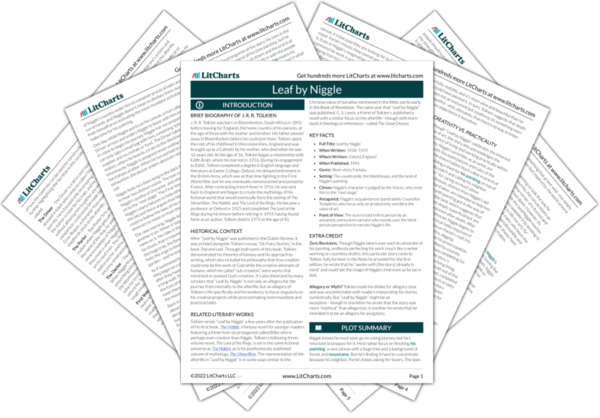The mountains, which feature both in Niggle’s painting and in the land he enters after leaving the Workhouse, symbolize the unknown that follows death. Niggle struggles to paint the mountains perfectly, not quite able to work out the right slant of light on one of the peaks. Yet he knows that the mountains exist somehow outside of his painting, in the distance. And when he leaves the Workhouse and enters the land that resembles his painting, the mountains are indeed there in the distance. Similarly, it’s not clear to humans what might happen when we die: the reality of death definitely exists in the distance, but its exact details are unknown. Furthermore, Niggle’s feeling that he is trying to capture the image of the mountains, rather than trying to dream them up himself, suggests that one can strangely intuit certain elements of paradise (or whatever follows death) in everyday life.
The Mountains Quotes in Leaf by Niggle
There was one picture in particular which bothered him. It had begun with a leaf caught in the wind, and it became a tree; and the tree grew, sending out innumerable branches, and thrusting out the most fantastic roots. Strange birds came and settled on the twigs and had to be attended to. Then all round the Tree, and behind it, through the gaps in the leaves and boughs, a country began to open out; and there were glimpses of a forest marching over the land, and of mountains tipped with snow.
You could go on and on, but perhaps not for ever. There were the Mountains in the background. They did get nearer, very slowly. They did not seem to belong to the picture, or only as a link to something else, a glimpse through the trees of something different, a further stage: another picture.












